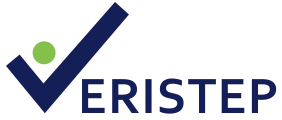Transparency and trust are critical in the complex world of work. The unpleasant truth of employment fraud is that it can have serious repercussions for both employers and employees. We’ll explore the depths of job fraud in this blog article and stress the critical function background checks play in protecting against dishonesty and guaranteeing a safe and reliable workplace.
1. The Rising Threat of Employment Fraud: A Growing Concern
- Understanding Employment Fraud:
Explore the various forms of employment fraud, including resume fabrication, identity theft, and misrepresentation of qualifications.
- Impacts on Businesses:
Highlight the detrimental effects of employment fraud on businesses, ranging from financial losses to damaged reputation..
2. The Role of Background Checks: A Shield Against Deception
- Verification of Credentials:
Background checks play a crucial role in confirming the accuracy of an individual’s educational qualifications, work history, and professional certifications.
- Criminal Background Checks:
Employers can use criminal background checks to assess potential risks and ensure a safe working environment for all employees
3. Protecting Company Assets: Preventing Insider Threats
- Preventing Insider Threats:
Background checks help identify potential insider threats by screening for individuals with a history of dishonesty or questionable ethical conduct.
- Securing Sensitive Positions:
For roles that involve handling sensitive information or financial transactions, thorough background checks are essential to prevent corporate espionage and fraud.
4. Building Trust Amongst Employees: A Foundation for a Healthy Workplace
- Employee Trust:
A workplace built on trust is vital for collaboration and productivity. Background checks help establish a sense of security and trust among employees.
- Protecting Existing Workforce:
Ensuring that new hires are thoroughly vetted through background checks protects the existing workforce from potential risks.

5. Legal Compliance: Navigating the Regulatory Landscape
- Legal Obligations:
Employers have legal responsibilities to provide a safe and secure working environment. Background checks assist in fulfilling these obligations and mitigating legal risks.
- Adherence to Industry Standards:
Many industries have specific compliance requirements, and background checks help ensure adherence to these standards.
6. Preventing Identity Theft: A Personal and Organizational Imperative
- Identity Verification:
Background checks contribute to identity verification, reducing the risk of hiring individuals who may be using false identities.
- Protecting Employee Privacy:
Employers must balance the need for background checks with respect for employee privacy, ensuring a fair and ethical hiring process.
Conclusion: The Shield of Vigilance in the Employment Landscape
In the face of employment fraud, background checks emerge as the vigilant shield that protects both employers and employees. As businesses navigate the complex landscape of hiring, implementing thorough background checks becomes a fundamental practice, ensuring the authenticity of credentials, safeguarding against potential risks, and fostering a workplace founded on trust and integrity. By understanding the critical role of background checks, organizations can fortify themselves against the threats of employment fraud, creating a secure environment for sustained success and growth.


